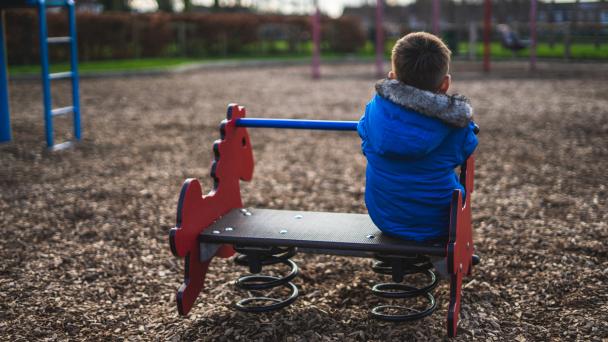Researching childhood events and development using Growing Up in Scotland (GUS)


Taking place between 2021 and 2023, the eleventh sweep of the Growing up in Scotland study (GUS) collected data from almost 2,500 young people in Scotland around the age of 17 and around 2,000 parents and carers. This sweep covered topics such as school experiences, post-school plans, further and higher education, apprenticeships, employment, use of free time, attitudes towards social media, political views, relationships with parents and peers, mental health, physical health, and risky behaviours. As sweep 11 data collection took place during the COVID-19 pandemic, we were able to capture the experiences of young people during this period of unprecedented change. Following the recent publication of the UK Covid-19 Inquiry module on children and young people (UK Covid-19 Inquiry, 2025), what can GUS tell us about young people’s experiences during and immediately following the pandemic?
With school closures beginning in March 2020 and continuing intermittently until March 2021, the introduction of online learning for secondary school students proved a challenge for many. Although most young people (92%) always had access to a computer, laptop, or tablet when they needed it, young people in more deprived areas were less likely than those in less deprived areas to report having access to this technology (86% in Scottish Index of Multiple Deprivation (SIMD) 1 reported they always had access, compared with 96% in SIMD 5). This finding was reflected in the recent UK Covid-19 Inquiry publication, which noted that lack of access to technology or the internet was a challenge for many young people, particularly for those from low-income households.
Support for studying at home was also a challenge for young people during the pandemic, both from teachers and from people within the household (UK Covid-19 Inquiry, 2025). This is reflected in the GUS findings, which showed that, while the majority of young people felt it was ‘always true’ or ‘sometimes true’ that they had help with coursework from someone at home when they needed it, 21% reported that this was ‘not true’. Similarly, 13% of young people reported that it was ‘not true’ that they had the support they needed from their teachers. Young people in more deprived areas were more likely to report not having support from someone at home (28% in SIMD 1 compared with 16% in SIMD 5) or their teachers (15% in SIMD 1 compared with 10% in SIMD 5).
Young people were also asked whether they gave up on trying to study until school or college reopened. 60% of young people said that this was ‘sometimes true’ or ‘always true’, with those in more deprived areas notably more likely to report this being ‘always true’ (26% in SIMD 1 compared with 8% in SIMD 5).
Many young people were worried about the impact of the interruption to their studies on their educational attainment and future job prospects. At age 17, 42% of young people ‘agreed’ or ‘strongly agreed’ that they were worried about the time they missed at school, college, or training due to Covid. In addition, almost half (47%) of young people were worried about the impact of Covid on their qualifications or training. When asked about transitions to life after school, 40% of those who had left school felt it did little to prepare them for what came next. Although this question was not asked specifically in relation to Covid, these worries were nonetheless reflected in the findings of the UK Covid-19 Inquiry, which found that the disruption to schooling meant that young people were less prepared for the transition to the next stages of their education. However, contrary to the worries of young people, teachers reported that many received higher grades than they may have done under normal circumstances. Teachers reported awarding higher grades to avoid unfairly disadvantaging their students, hoping that these higher grades may alleviate some of the harm caused by disrupted learning during Covid. However, it was noted that this artificial inflation of grades might lead to young people struggling in more challenging classes or courses in the future.
Young people were also worried about the long-term impact of Covid on their job prospects, with 40% of young people at age 17 ‘agreeing’ or ‘strongly agreeing’ they were worried about this. This worry was picked up by parents, carers, and teachers in the UK Covid-19 Inquiry, with parents noting the lack of access to careers advice or work experience for young people.
These findings highlight some of the significant challenges and disparities faced by young people, especially those in more deprived areas, as a result of the Covid pandemic. This data, in combination with the findings of the UK Covid-19 Inquiry, underscores the importance of the resources and support provided by schools and parents in enabling young people to succeed.
A full report on the sweep 11 findings from Growing Up in Scotland, including the topics covered here as well as areas such as mental health, relationships with parents and peers, and engagement in risky behaviours, can be found at Life at age 17: initial findings from the Growing Up in Scotland study (Sweep 11) - gov.scot.
The data can be accessed via the UK Data Service. Further information is available via the GUS website: Growing Up in Scotland | Accessing GUS data
GUS Sweep 11 data, and data from previous years, can be accessed from the UK Data Service. All Sweep 11 documentation, including user guides and copies of the questionnaires, are available from the GUS website.
If you have questions about using the data, or if you have a research question but are unable to analyse the data, please contact gus@scotcen.org.uk.
UK Covid-19 Inquiry. (2025). Every Story Matters: Children and Young People. UK Covid-19 Inquiry. https://covid19.public-inquiry.uk/every-story-matters/records/every-story-matters-children-and-young-people/
Sign up to our newsletter to receive regular updates about the Growing Up in Scotland study, as well as findings, events and blogs.
Click here